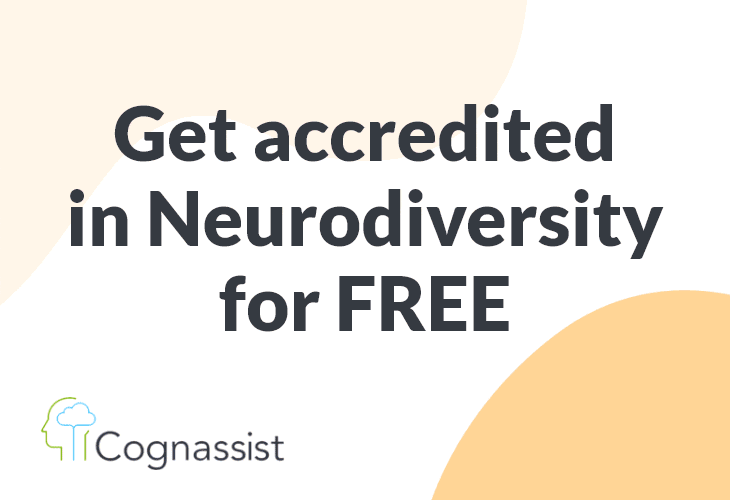How to support neurodiverse learners: #1 Verbal memory

Verbal memory is a type of long-term memory involved in remembering and recalling spoken or written information.
It also includes our internal spoken thoughts. “Although the word long-term frequently carries with it the connotation of days, weeks, months, and years in the clinical literature, long-term storage processes can begin within a few minutes or hours of performing a task.” (The Cattell-Horn-Carroll Theory of Cognitive Abilities, 2014)
Difficulties with verbal memory can cause noticeable behaviours, like:
- Having to ask someone to do something more than once.
- Losing concentration during tasks or forgetting what we should be doing.
- Difficulty memorising information or revising.
- Missing appointments or deadlines.
- Finding it hard to answer questions on the spot.
- Feeling easily overwhelmed with too much information.
For organisations that do not have access to cognitive assessments, it helps to look out for these behaviours with new starts.
Try to understand that these types of difficulties can cause a great deal of frustration for learners, which can unfortunately create friction with tutors.
But this behaviour is not always intentional. Providing these learners with a different approach can help them to thrive and overcome certain difficulties.
Our three top tips for supporting a need in verbal memory:
#1 Break down tasks and present information in small chunks
When our ability to store information is already at a premium, it can help to be aware of how we present information to learners.
Are we speaking too fast? Do we pause before changing topic? Are we using a lot of text in our presentations or seminars?
Breaking down the information we give to learners and putting larger tasks or topics into smaller chunks helps us to process information more easily – this is especially important for learners who experience difficulties processing verbal information.
#2 Repeat information and summarise content for each topic or skill
Repetition is vital for learning, and some learners may require more attempts to complete or remember a task. We all learn at our own pace, and it’s important to make sure each learner has a functional grasp of information before moving on.
Try going through the steps of a task more than once before asking learners to do it themselves.
Summarise content at the end of each topic or lesson to drive further comprehension.
Giving learners every opportunity to retain information really helps, and our patience will go a long way to improving their confidence and skills.
#3 Provide supporting visual cues, directions or instructions
When we find it difficult to process verbal information, it makes sense to rely on visual abilities that we may be stronger in.
Try showing a learner the step-by-step process for tasks in advance or show them what the end result should look like for reference. Related diagrams and pictures can also reinforce written or spoken information, but they should be related – so take it easy on the memes and cat photos!
Just because these tips feel like small adjustments, which can be easily forgotten, doesn’t mean they can’t have a big impact on learners.
Often, tutors will make adjustments like this anyway, but it helps to understand why they matter and look out for learners who may benefit from these strategies more than others.
Dr. Louise Karwowski, Head of Science, Cognassist
So, what’s next?
We’re about to bring you something very exciting. A serialised set of guides on how to identify and support learners with a need in the eight key cognitive domain.
How to support neurodiverse learners: |
We’ll be posting one guide a week, rounding up with a podcast with Dr Louise Karwowski, Head of Science at Cognassist, who will discuss the importance of starting the conversation about neurodiversity with your staff and learners.
If you like the sound of understanding more about neurodiversity, you can register for free for the NCFE endorsed Neurodiversity Masterclass here:
You can also check out the full guide How to support Neurodiverse learners now.


Responses